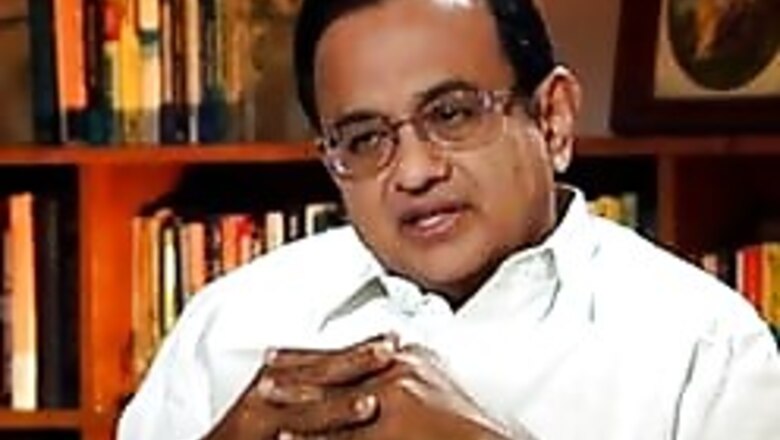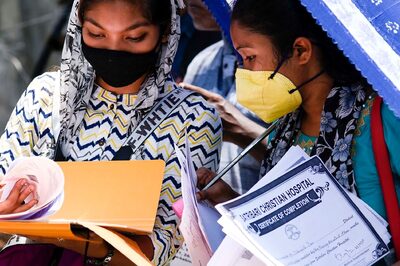
views
New Delhi: Putting a brave face on inflation numbers, Finance Minister P Chidambaram has said rising prices will not have much of an adverse impact on the UPA Government.
"We are doing everything to control the situation, but I don't think it (price rise) will have too adverse an impact on our government," he said in an interview with Tehelka magazine.
Chidambaram said while the average inflation in the 70s and 80s was well over eight per cent, the tolerance level of price rise has come down drastically. "Since the turn of this century, I think tolerance level of inflation is only four to five per cent," he said, adding "the moment the figure goes beyond five per cent, there is a resentment.
"Naturally political parties seize the opportunity to feed this resentment," Chidambaram said.
Despite a slew of administrative and fiscal measures like ban on export of cement, wheat and non-Basmati rice and scrapping of customs duty on a host of edible items, inflation has crossed eight per cent, giving a handle to the opposition parties in an election year. The boiling crude oil prices around 135 dollars a barrel has added to the problem.
Critical of the delays in sanctioning of the big-time projects which could have resulted in a huge capacity build-up, Chidambaram said people in poor states were being "deceived" to believe that the existing state of life is an ideal state of life.
"Here we talk about steel prices going up, but for three years we have stopped the world's largest steel producer from producing steel in India. This could be categorised as a conspiracy of the socially-driven class to keep poor people poor," he said.
On Special Economic Zones, Chidambaram said there is "some consternation" about the way the policy is operating. The Empowered Group of Ministers has been looking into the policy but "it is taking more time than I would have liked," hoping the concerns would be addressed.
He said achieving high growth of 9-10 per cent for the next 20-30 years is the only way to remove poverty. "We get weary easily... You have to work hard for it."
Though India has put up an impressive growth in the last four years, it has not trickled down to the poor. "Our growth is at an impressive rate, but the pace of inclusiveness of that growth is at a very tiny rate," he said.
He blamed poor system of administration for the leakages in the delivery of items meant for the poor. The UPA government has put 70 lakh tonnes more foodgrain into Public Distribution System after 2004, compared to previous years.
"This should have taken the PDS to a larger target group but, on the contrary, due to high rate of leakage which is stuck at 35-36 per cent, the perception is that the PDS is a broken system and people are more resentful of it," Chidambaram said.
The agriculture sector, which had a laggard growth in the last few years, has started improving.
According to the latest assessment of 2008 by rating agency ICRA, the agriculture sector will grow by over 4.5 per cent. The food grains production is expected to be 227-230 million tonnes.
"So agriculture in itself is doing well. Yet farmers are poor because of the vast numbers dependent on agriculture," Chidambaram said adding the issues of water, power, seeds, fertilizer and credit must be addressed.
Chidambaram praised the BJP-ruled Gujarat for solving the problem of electricity to farmers. " Gujarat has shown us the way on how to fix power for agriculture," he said.



















Comments
0 comment